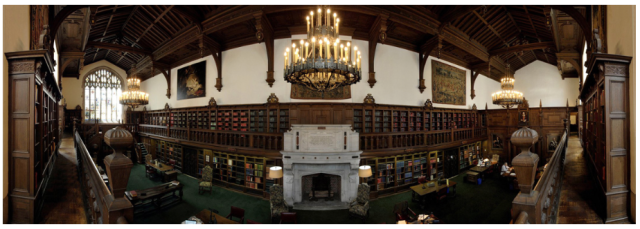For an example of the kinds of assignments I create for my students, see the following Global Perspectives in Literature post: Diary of a Madman
On hiatus
Greetings! This blog page is on hiatus. I currently use WordPress as a teaching tool for responding to literature and using digital resources in my survey classes and creating and managing blogs for my desktop publishing class.
Wingate’s ESU Shakespeare Competition: March 4, 2015
“I would be loath to cast away my speech: for besides that it is excellently well penned, I have taken great pains to con it” (1.5.167-69). –Viola from Shakespeare’s Twelfth Night
One of my favorite scenes from Shakespeare’s Twelfth Night is Viola’s first encounter with Olivia, as Viola (or Cesario) attempts to woo Olivia for Orlando. Her words of frustration as she tries to speak the speech she memorized echo the sentiments of all of our contestants, I am sure, when the weather forced us to postpone our competition. I hope all of our contestants and teachers will be able to join us for our rescheduled event! Wingate’s English Department and our local English-Speaking Union branch love hosting this event each year for our talented middle and high school students.
Wingate’s 2015 Shakespeare Competition Postponed
Wingate University’s Annual Shakespeare competition for middle and high school students will be postponed due to inclement weather. Since Winter Storm Octavia is responsible for this postponement, I give you the following words from Shakespeare’s Octavia, which communicate our disappointment at having to reschedule the event:
“Believe not all; or, if you must believe,
Stomach not all. A more unhappy lady,
If this division chance, ne’er stood between”
–Octavia from Shakespeare’s Antony and Cleopatra
Here is a stunning promotional image from Shakespeare’s Globe’s production of Antony and Cleopatra, which I had the opportunity to see this summer.
happiness = a corner table in the Folger Shakespeare Library
Last week, I had the pleasure of researching in the Folger Shakespeare Library’s special collections with one of my undergraduate students. Throughout the week, my student and I examined sixteenth and seventeenth-century narratives and plays about the Trojan War, a project which is sponsored by Wingate’s summer research grant program.
For those of you who have not been to the Folger Shakespeare Library, the space houses educationally enriching exhibits, a theater company, and best of all (yes, I am bias) a reading room for scholars. Researching at the Folger is heavenly. The librarians are incredibly friendly and knowledgeable — two qualities that don’t always coexist in archival librarians. While the Folger is a place for serious research, the librarians genuinely care about the researcher’s experience. Like most special collection libraries, the reading materials are restricted. If a reader is curious enough, when in the basement, she can crane her neck to see the vaulted door that safely secures all of the documents and memorabilia that have been collected and donated throughout the years. Yet the best space, in my opinion, is sitting underneath the stained glass rendering of Shakespeare’s seven stages of man at a corner table in the Gail Kern Paster Reading Room.
 For more information on the library’s holdings and programs, go to the Folger Shakespeare Library’s website.
For more information on the library’s holdings and programs, go to the Folger Shakespeare Library’s website.
Teaching Shakespeare Institute: A 30-Year Milestone
 In 1984, the National Endowment for the Humanities funded the first Teaching Shakespeare Institute, a month-long summer program at the Folger for high school and middle school teachers from across the country. Thirty years later, TSI is still going strong.
In 1984, the National Endowment for the Humanities funded the first Teaching Shakespeare Institute, a month-long summer program at the Folger for high school and middle school teachers from across the country. Thirty years later, TSI is still going strong.
This summer we’re commemorating three decades of tradition and celebrating how TSI has transformed the way Shakespeare is taught in American classrooms.
In coming weeks on this blog, we’ll be posting interviews with alumni from past TSI programs, leading up to TSI 2014, which begins June 29. Less than a month to go!
TSI began under Folger Education’s founding director, Peggy O’Brien, who left the Folger in 1994 but returned in 2013. O’Brien edited Shakespeare Set Free, a groundbreaking series packed with practical, specific teaching ideas written by TSI faculty and participants.
In past summers, participants have studied four Shakespeare plays—a play a week—from three essential perspectives: scholarship…
View original post 55 more words
Wingate’s Annual Shakespeare Competition
Wingate University‘s Annual Shakespeare Competition, sponsored by the English-Speaking Union, was an amazing success! The judges were all so impressed with the level of talent that our area’s middle school and high school students displayed during their performances. We appreciate all of the middle school and high school teachers who emphasize the value of interpreting and performing Shakespeare and make time in their busy schedules to prepare their students for the competition. We are grateful to everyone at Wingate University, Wingate University Department of English, and in our community who helped out on Thursday. Special thanks to Wingate Today, Carolina Impact (WTVI PBS), and FOX46 Carolinas for joining us for our 30th Anniversary of the competition! Opera Carolina, UNC Charlotte College of Arts + Architecture, and Wingate’s The Batte Center for the Performing Arts also generously donated complimentary tickets to popular performances as prizes for our winners and their teachers. And Wingate’s Office of Admissions provided gift bags for all of the participants and their teachers and offered scholarships to the first, second, and third-place winners in the high school division. We look forward to hosting the competition again next year!
If an assistant professor falls in the quad
. . . she makes a very loud sound.
A few weeks ago, the night before our first snow, I stayed late at work to get some tasks squared away so that I would be on top of my to-do list in the event that school was canceled. As I opened the hall door to step outside, I noted that it had begun snowing (OK, so really sleeting, but we will call it snow). I was prepared: with my tailored, long tweed coat snugly buttoned up and my gloved hands tightly wrapped around my over-sized purse, I made my way across the diagonal path of our quad’s sidewalks to my car. Despite the wet weather, my steps were fast and sure, as I anticipated the warmth of my car. There was only one problem: I was wearing these fabulously cute black fur boots that my mom had loaned me, and well, my ankles were too narrow for the heel.
Before I knew it, I was flat on my face in the middle of the quad. Luckily, I had weighed myself down with books and folders, thinking that I would get ahead on work during the snow day. The twenty pounds of pages broke my fall and prevented me from destroying my phone. While I usually think of the quad as a place to say hello to students and faculty in passing as I hurry to class, that night, I thought of it as a public place of embarrassment.
I had fallen, not because of the wet ground or the sleet but because I had been walking too fast in fashionable shoes that did not fit me. I was mortified (but only briefly). I scrambled to pick up books, papers, and pens as I inwardly winced at the pain that shot through my freshly bruised palms and knees. Fortunately, I didn’t think anyone was outside in the quad to see me fall, and beyond my pride, I was not actually hurt. I did hear a door shut right before I landed face down in a heap, and after my awkward plummet, two girls, gleefully elated over the first snow, exited Alumni Hall. But no one ran up to me asking if I was hurt.
A second thought then occurred to me: perhaps the two girls did see and perhaps that door that shut a split second before I fell also sheltered someone who saw my embarrassing stumble. I said a thankful prayer that it was dark, and that either everyone was too preoccupied with the snow to notice a very loud scream of “OUCH!” echoing across the quad or that they had the Southern grace to pretend not to notice that I fell once they saw that I was alright.
The quad, a place where I gather my thoughts before walking into the classroom or smile at students as I pass them by, is also a place for watching my step more carefully at night. At least, now, when I am carrying an armful of books and papers that I may or may not get through in one night, I can tell myself that it is simply for my own good, as those pages are intended to cushion my landing should I fall again, which since I am a klutz, will more than likely happen.

Places and Spaces in Academia
So I have a confession to make. For awhile now, I have not been posting much because I have been struggling to think about who my audience is for this blog. Friends who want to know more about what I do? Other educators who may stumble upon my blog? Students who want to know more about me? Posting about what I teach at times has felt forced or more of a diary for myself than something for other people to view. This feeling troubles me because I ask my desktop publishing students to create and keep up with blogs. Of course, I let them have free reign over what they would like to blog about, and I have thought about that for my own writing. Would I be more likely to post about life as a quasi-vegan, mostly gluten-free professor or to have a blog where I review films? Perhaps. Could I motivate myself to realize my aspiration of becoming an amateur triathlete or marathon runner by posting about my fitness goals so that the thought of readers in the blogosphere would hold me accountable? That sounds overly ambitious for winter, not to mention physically exhausting at the beginning of the semester.
I think that there is value in posting about my teaching and research, regardless of who my audience is or how often I post, yet I have been lacking inspiration, or a tangible touchstone, that would create more of a focus for this blog that goes beyond “Here’s what I taught or researched this week.”
The answer or inspiration came to me when I was driving home. I am incredibly attached, like many people, to places and spaces–some for nostalgic reasons and others for functionality. So I will now write about these spaces, buildings, corners, and other places and their connections to my work. Starting now. Clearly, my desk is not the most breathtaking view or beautiful space that I could write about for my first new post, but this space is quite functional. My sturdy desk, which rivals a mammoth when it comes to weight, is both comfortable and spacious.
This is a picture of my desk when I have all (or nearly all) of my technology up and running to grade and comment on students’ work. I love technology. Sometimes, I fear that my love for technology can be a distraction from getting the work done in a more efficient manner, but I know that when I learn a new app or new program that will help me provide feedback for students or teach them something new, I am not only commenting on my students’ work or finding new learning methods, but I am also enriching my educational experience, which is important to me.
Twitter’s biggest challenge post-IPO: Optimising for advertising is a double-edged sword
This short blog post should inspire student conversations about the web in my composition and desktop publishing classes. I am looking forward to discussing advertising’s place on the web with my English 110 students for our next composition unit, Argument and Technology: the Future of Social Networking, Websites, and Communication.
As Twitter tries to get its financial house in order prior to going public at a multibillion-dollar valuation, one of the aspects of its business that will be under an intense spotlight — as it was with Facebook (s fb) — is the company’s ability to generate advertising income, since that makes up the vast majority of its revenue. Among other things, Twitter will have to show that in-stream ads not only work but are growing rapidly enough to justify a market value as high as $20 billion.
As Quartz has pointed out with a helpful math lesson, Twitter’s revenue per user is much lower than Facebook’s, currently running at about $0.55 vs. $1.41. To some extent the two are apples and oranges, since Facebook has a lot more variety when it comes to ad formats and can therefore charge more — but even so, investors are still…
View original post 788 more words
Invoking Grammar Girl
Even though I am an Assistant Professor of English, I have never thought of myself as a stickler for grammar rules. My twenty-first century composition pedagogy classes encouraged me to focus on an essay’s content over the mechanics, and I think of myself as a teacher who appreciates well-developed paragraphs more than perfect grammar. This week, however, I revised our department’s diagnostic grammar test, the pre-test that we give our students at Wingate, and I discovered, to my shock, that I was having fun revising the test. Imagine my surprise. I approached the task with dread, thinking that I was going to be frustrated with the grammatical nuances that the test, which had not been redesigned in awhile, focused upon; imagining my students wading through the “he” versus “him” questions; and picturing myself failing to convert my students into writers who cared about commas. Yet I soon realized that I enjoyed redesigning the questions and thinking about how I will discuss the correct answers with my students after they take the test.
Of course, I had excellent English teachers in middle school and high school, who drilled the rules into my head, and professors, editors, reviewers, and friends now let me know when I have wandered off the path of grammatical correctness. Even as I write this, I imagine that there are at least a few writers and friends out there who will correct the grammar of my blog post. Bring it: I welcome your corrections. Yet, [just kidding about that comma] I realized in rewriting this test that I have internalized some rules so much that I do not think about them or my affection for grammar. Therefore, I am now confessing that while I might not follow every rule in each email that I send or blog post that I submit, I love grammar. Stay tuned. My sentiments might change when I have to revise the post-test after receiving feedback on the pre-test. Let us hope that I will continue to channel my inner grammar girl and that near perfect punctuation prevails in the post-test!
Louis Butelli: Folger Audio Recordings
Folger Theatre Production Diary
Hello once again from your friend Louis Butelli, most recently Feste in Folger Theatre’s Twelfth Night. We closed our show on June 9 after a great run: thanks to everybody who came out to see us.
I’m back at the Folger to participate in an exciting new project – immersive audio recordings of the full Folger Editions of Shakespeare’s plays.
Published by Simon & Schuster, and edited by Barbara Mowat and Paul Werstine, the Folger Editions of Shakespeare are widely considered to be among the very best anywhere. In working as an actor on Shakespeare plays all over the country, I’ve found that one can always rely on there being a Folger Edition in the rehearsal room. Featuring excellent notes, essays, and illustrations, they are an invaluable resource for anyone working with Shakespeare, professionals and students alike.
Now, we’re going to go to work on creating…
View original post 856 more words
My Desktop Publishing Students’ Website Portfolios
I meant to post this entry several weeks ago when the spring semester ended, but I got caught up in summer projects. Here are a few of my students’ blogs and websites from my Desktop Publishing class (English 256). Needless to say, I am proud of my students’ diverse interests, creativity, and professionalism and look forward to seeing where their future careers in editing, teaching, writing, and communications take them!
Please click on the following images to view my students’ portfolios:
Over the course of the semester, each student designed projects for various publishing and marketing purposes (magazine covers, advertising packages, resumes, and brochures), created and maintained a blog on wordpress or blogger, recorded screencasts, and developed a website portfolio using google sites or wordpress. I hope that you enjoy reading their portfolios as much as I did! I felt very lucky to have such a talented class and will post more web portfolio links in the near future.
In honor of Shakespeare’s birthday . . .
Death and Satan in Paradise Lost
After I attended a session on emblems and literature at the Renaissance Society of America conference, I was inspired to show more images of the scene between Satan, Sin, and Death for my class’s discussion of Paradise Lost, Book II. I often have students draw Sin or another character as well as Milton’s universe to encourage them to connect their reading with their visualization of the characters and the setting. Including more images of Blake’s illustrations as well as other artists’ work helped solidify this exercise, I think. I will be interested to see if the students who are making research presentations on Paradise Lost also incorporate more artists’ works into their prezis and powerpoints.
William Blake’s Sin and Death, 1808. For more illustrations, check out Darkness Visible’s site.






